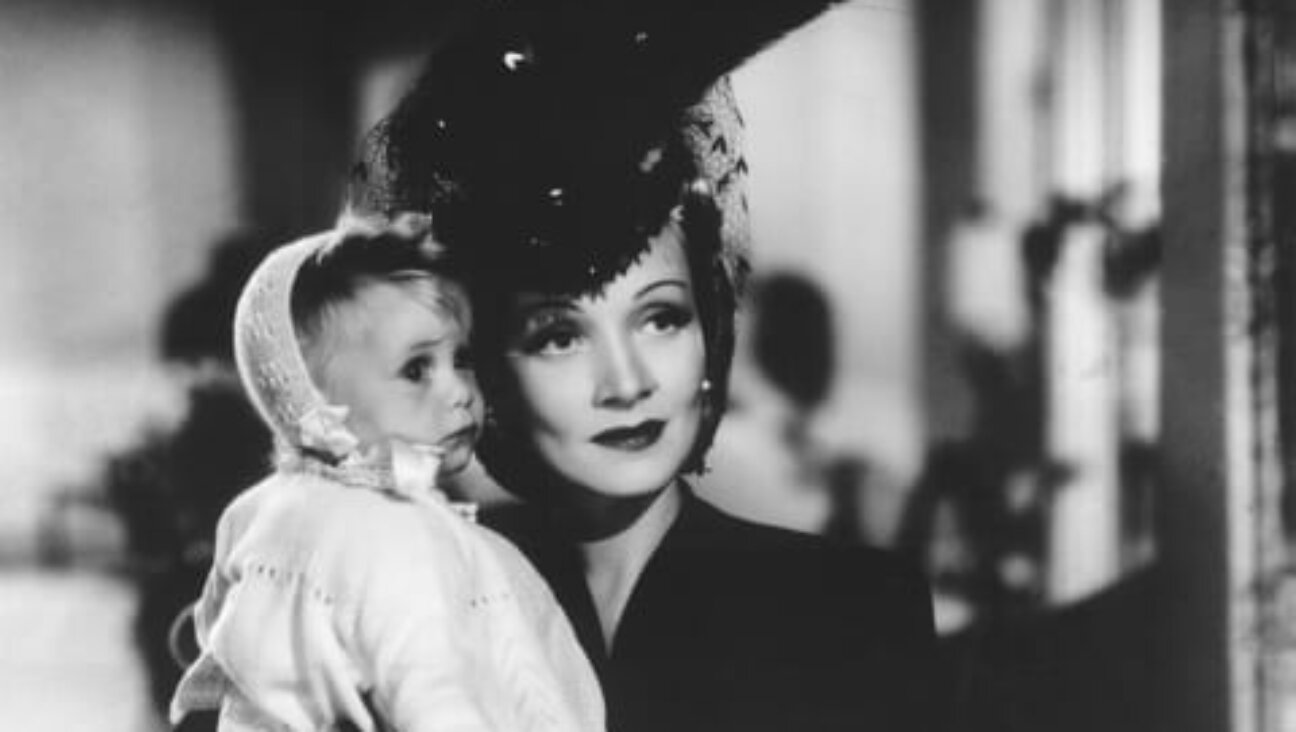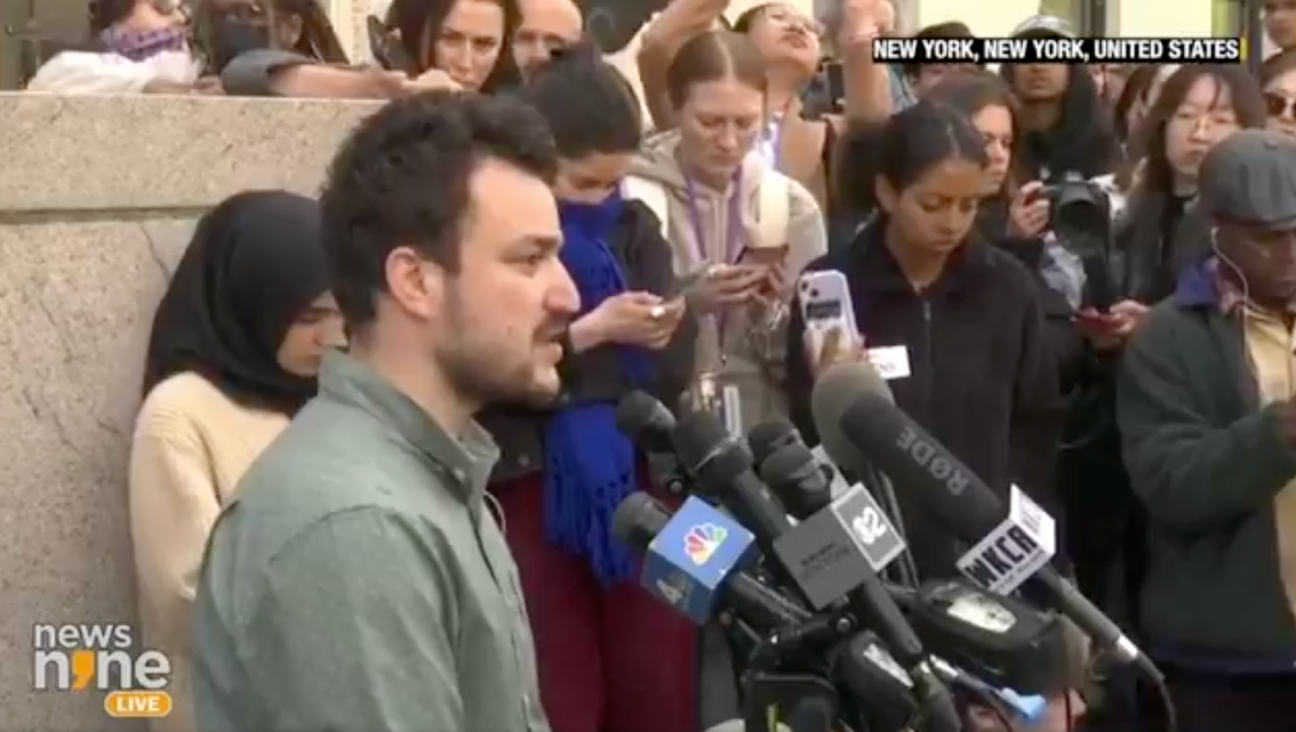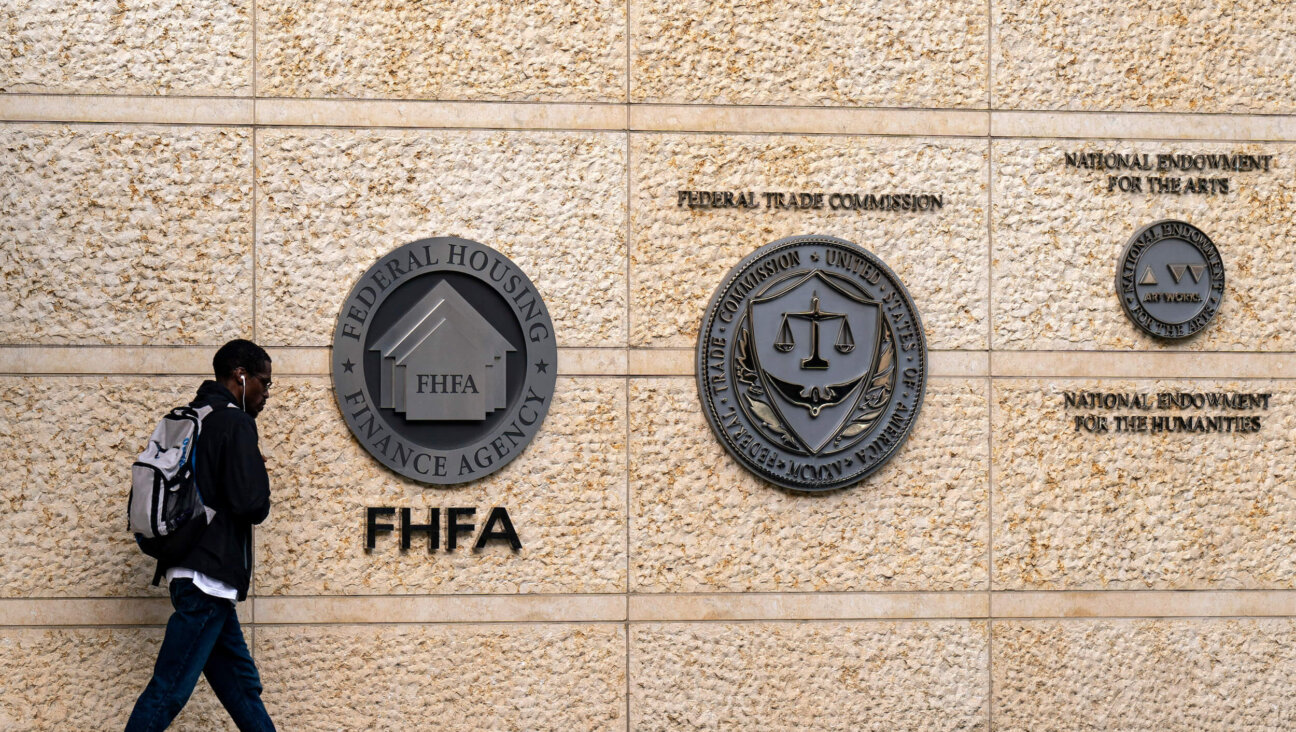Foxman Fever Doesn’t Discriminate
With the Academy Awards almost upon us, Oscar Fever is running high. And, in a rare confluence of circumstances, it’s colliding with a more exotic virus, one that might be called Foxman Fever.
Some observers have been struck by the fact that three of the 10 Best Picture nominees this year have an intensely Jewish focus. Especially striking is that none of the three films is particularly flattering to Jews. “Inglourious Basterds” portrays Jewish GIs gleefully slaughtering Nazis. “A Serious Man” depicts rabbis as blathering fools. Most controversially, “An Education” tells of a 16-year-old girl seduced by an unscrupulous Jewish businessman. A few reviewers have called “An Education” outright antisemitic.
And this is where Oscar Fever collides with Foxman Fever. Los Angeles Times entertainment blogger Patrick Goldstein, in a February 3 post, noted that “all sorts of smart folks” were untroubled by these films’ Jewish imagery, including historian Neal Gabler and media scholar Howard Suber. Then Goldstein delivers his coup de grace: “Even Anti-Defamation League national director Abraham Foxman supports ‘An Education.’”
What Goldstein means, of course, is that if Abe Foxman doesn’t see antisemitism, it isn’t there. He doesn’t bother spelling this out, since it’s presumably clear to most thinking Americans — at least the “smart folks” among us — that Foxman is the country’s most prolific antisemitism-spotter, the gevalt guy who sees Jew-haters under every bed and invents them if he can’t find them.
This view of Foxman as Chicken Little has gained near-universal currency, with the exception of Foxman’s most sworn admirers and adoring (and aging) donors. Journalist and author James Traub, a respected chronicler of societal trends, put forward this image of Foxman in a 2007 New York Times Magazine profile. In his telling, Foxman is “the hanging-judge of anti-Semitism,” an “anachronism” who continues to “harp on Jewish insecurity” in a world where Jews have become “the most widely admired religious group in America, as well as the most successful.” Portraying him as a blustering alarmist, Traub seemed bemused by Foxman’s warnings about “jihadist” antisemitism as a serious threat in today’s world and troubled by Foxman’s focus on “good for the Jews, bad for the Jews” to the exclusion of broader goals of “promoting tolerance and diversity.”
“Foxman upset many of his colleagues by extending a welcome to Christian conservatives, whose leaders tended to be strongly pro-Israel even as they spoke in disturbing terms of America’s ‘Christian’ identity,” Traub wrote. “Foxman was willing to cut them some slack on issues of social justice, and even of church-state relations, in the name of solidarity toward Israel.”
Similar themes are sounded by critics on all sides. Oddly, though, the critiques are constantly twisting around, mirroring and contradicting each other, sharing nothing but a certainty that Foxman is a loudmouthed bully. That’s Foxman Fever.
In recent months, for example, Republicans have been savaging Foxman for doing precisely what Traub accuses him of not doing: attacking right-wing extremists even when they support Israel. Last November, for example, Commentary editor Jonathan Tobin wrote that the ADL had “stepped over the line” and was trying to stifle criticism of the Obama administration with the publication of a report, “Rage Grows in America: Anti-Government Conspiracies,” which warned of anti-democratic tendencies and intolerance in far-right movements like the Tea Parties and in the rhetoric of media figures like Glenn Beck.
In January, Foxman drew more ire from the conservatives when he attacked Rush Limbaugh,a accusing him of “borderline anti-Semitic” stereotyping. Foxman had taken Limbaugh to task for saying that President Obama was “assaulting bankers. He’s assaulting money people. And a lot of those people on Wall Street are Jewish. So I wonder if there’s — if there’s starting to be some buyer’s remorse there.” In response, Norman Podhoretz claimed that Foxman “has a long history of seeing an anti-Semite under every conservative bed” and demanded that he “apologize for the defamatory accusation of anti-Semitism that he himself has hurled against so loyal a friend of Israel as Rush Limbaugh.”
Others on the right have been even harsher. Boston activist Charles Jacobs, founder of the David Project and Americans for Peace and Tolerance, recently called for a “second ADL” to battle radical Islam, accusing Foxman of “silence,” “PC-denial” and “timidity.” Allies have piled on, calling him “leftist,” “cowardly” and even “fetid.” One activist called for a class-action lawsuit by ADL donors to demand a new leadership.
The fact is that Foxman has been going after right and left alike with more or less equal gusto for decades, charging antisemitism when he thinks he sees it and publicly rejecting the charge when he thinks it’s unfounded, as he did with the Oscar nominees. He outraged the left in the 1990s by accepting Pat Robertson’s apology for using bigoted language, only to have Robertson accuse him in 2002 of shilling for the Democrats when he criticized a Robertson video with Christ-killer imagery. He alienated black leaders in the 1980s for blasting Jesse Jackson’s Hymietown-style language, and then angered the right when he publicly embraced Jackson as a friend in 1992.
In the end Foxman seems to embody for each critic whatever it is that the critic most dislikes about Jewish advocacy, whether for being too liberal or too conservative, too militant or too pragmatic. If he’s everyone’s target of choice, that’s largely because he’s the only Jewish communal spokesman that most Americans, Jewish or non-Jewish, have ever heard of. He’s constantly taking it on the chin because just about everybody seems to have some sort of beef with the Jewish community these days. Which proves either that Jews have truly arrived or that Foxman’s worst fears are coming true.
The Forward is free to read, but it isn’t free to produce

I hope you appreciated this article. Before you go, I’d like to ask you to please support the Forward.
Now more than ever, American Jews need independent news they can trust, with reporting driven by truth, not ideology. We serve you, not any ideological agenda.
At a time when other newsrooms are closing or cutting back, the Forward has removed its paywall and invested additional resources to report on the ground from Israel and around the U.S. on the impact of the war, rising antisemitism and polarized discourse.
This is a great time to support independent Jewish journalism you rely on. Make a Passover gift today!
— Rachel Fishman Feddersen, Publisher and CEO
Most Popular
- 1

Opinion My Jewish moms group ousted me because I work for J Street. Is this what communal life has come to?
- 2

Opinion Trump’s Israel tariffs are a BDS dream come true — can Netanyahu make him rethink them?
- 3

Opinion I co-wrote Biden’s antisemitism strategy. Trump is making the threat worse
- 4

Film & TV How Marlene Dietrich saved me — or maybe my twin sister — and helped inspire me to become a lifelong activist
In Case You Missed It
-

Fast Forward Trump administration can deport Mahmoud Khalil for undermining U.S. foreign policy on antisemitism, judge rules
-

Opinion This Passover, let’s retire the word ‘Zionist’ once and for all
-

Opinion Passover teaches us why Jews should stand with Mahmoud Khalil
-

Culture At a seder by and for trans Jews, guests define liberation for themselves
-
Shop the Forward Store
100% of profits support our journalism
Republish This Story
Please read before republishing
We’re happy to make this story available to republish for free, unless it originated with JTA, Haaretz or another publication (as indicated on the article) and as long as you follow our guidelines.
You must comply with the following:
- Credit the Forward
- Retain our pixel
- Preserve our canonical link in Google search
- Add a noindex tag in Google search
See our full guidelines for more information, and this guide for detail about canonical URLs.
To republish, copy the HTML by clicking on the yellow button to the right; it includes our tracking pixel, all paragraph styles and hyperlinks, the author byline and credit to the Forward. It does not include images; to avoid copyright violations, you must add them manually, following our guidelines. Please email us at [email protected], subject line “republish,” with any questions or to let us know what stories you’re picking up.















